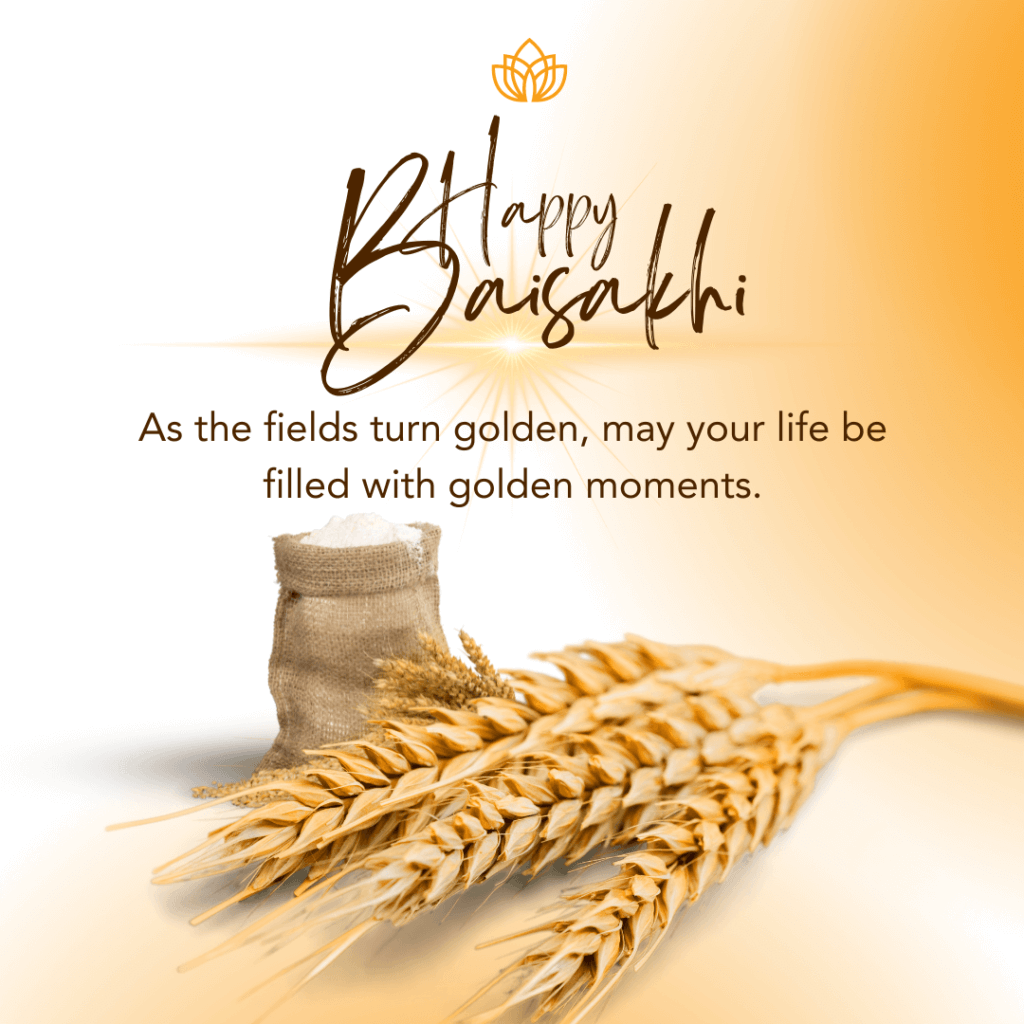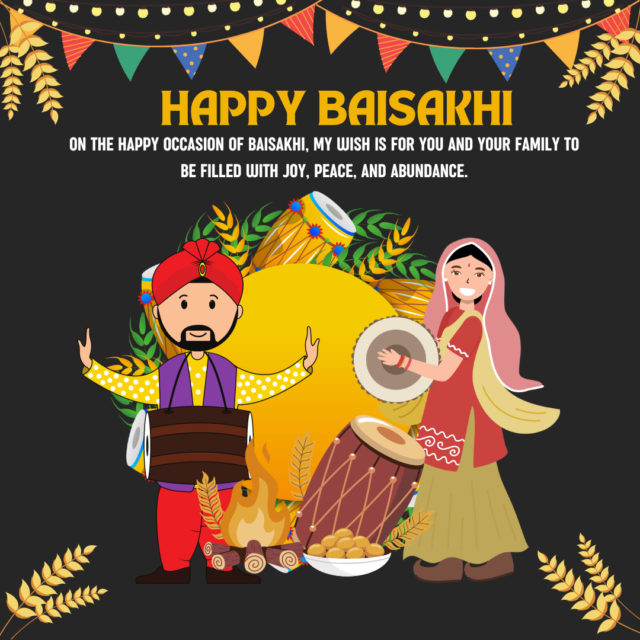A Time of Harvest, History, and Unity: Understanding Baisakhi
Baisakhi, also known as Vaisakhi, is a vibrant North Indian festival that celebrates harvest, history, and community. Marking the spring harvest in Punjab, Baisakhi is a joyous occasion for farmers to give thanks for the bounty of their fields and pray for continued prosperity. Beyond the celebration of harvest, Baisakhi holds deep significance for Sikhs, as it marks the establishment of the Khalsa Panth by Guru Gobind Singh Ji in 1699. This event serves as a cornerstone of Sikh faith and identity. As you can see, Baisakhi is a beautiful blend of cultural traditions and historical commemoration, fostering a sense of unity as people come together to celebrate. Baisakhi is definitely a time to celebrate the harvest in India. Not many of us know of this time of the year. It’s always is a pleasure learning from the historic roots of India.
Wishing you a Happy Baisakhi!
Why is Baisakhi Celebrated?
For Sikhs, Baisakhi holds immense importance. It marks the momentous occasion in 1699 when Guru Gobind Singh Ji established the Khalsa Panth. The Khalsa Panth is a community of Sikhs who have undergone baptism and are committed to a distinct identity and code of conduct. This code emphasizes values like righteousness, equality, and defending those facing oppression. The creation of the Khalsa Panth is a cornerstone of Sikh faith and a testament to their commitment to these principles.
Sikh Traditions:
- The Amrit Ceremony: The creation of the Khalsa involved a central ceremony where Guru Gobind Singh Ji administered Amrit, a holy nectar, to the first five Sikhs. This symbolized their initiation into the Khalsa Panth and their commitment to the Sikh way of life.
- The Five Ks: Following the Amrit ceremony, the Guru introduced the concept of the Five Ks, articles of faith that all Khalsa Sikhs wear: Kesh (uncut hair), Kangha (comb), Kara (steel bracelet), Kirpan (sword), and Kachera (underwear). These Ks represent various spiritual and social values.
Bhangra and Gidda:
- Energetic Dances: Bhangra and Gidda are energetic folk dances performed during Baisakhi celebrations. Bhangra is typically a men’s dance known for its vigorous movements and martial arts influences. Gidda is a women’s dance known for its graceful steps and colorful costumes. Both dances celebrate the joy of harvest and community spirit.
Langar:
- Community Kitchen: Langar, the Sikh community kitchen that serves free vegetarian meals to everyone regardless of background or religion, plays a central role during Baisakhi. This tradition embodies the Sikh principle of “Seva” (selfless service) and promotes social equality.
Read More: What is Chaitra Navratri?
A Time for Gratitude

Baisakhi coincides with the spring harvest in Punjab, a time for immense joy and gratitude for the bounty of the fields. Farmers celebrate a successful harvest season and pray for continued prosperity in the coming year. It’s a traditional festival that acknowledges the hard work and dedication put into cultivating the land.
New Beginnings and Unity
In many parts of North India, Baisakhi marks the beginning of the solar new year. It signifies a fresh start, a time for new beginnings and festivities. People come together to celebrate, reflecting on the past year and looking forward to a bright future. Baisakhi transcends religious boundaries and fosters a sense of unity within the community.
Vibrant Festivities
Baisakhi is a joyous occasion marked by colorful processions, energetic Bhangra and Gidda dances, and people dressed in their finest traditional attire. Langar, the free community kitchen that serves everyone regardless of background, becomes central during Baisakhi. This tradition embodies the Sikh values of equality and social justice, ensuring everyone can participate in the festivities.
Variations Across India: A Time to Celebrate Baisakhi
While Baisakhi holds these core meanings, it’s known by various names across India, such as Pohela Boishakh in West Bengal and Bihu in Assam. The specific celebrations might differ slightly, but the spirit of harvest, new beginnings, and community remains a constant thread throughout the country.
Baisakhi is a beautiful festival that celebrates the harvest, honors historical milestones, and fosters a sense of unity. It’s a testament to the rich cultural tapestry of North India and a reminder of the importance of community, faith, and hope for a prosperous future.
